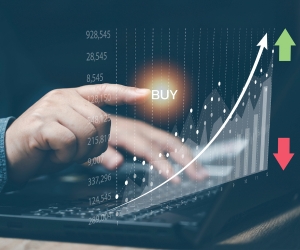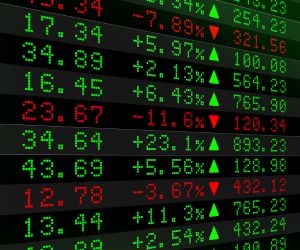Royal Dutch Shell plc is a global group of energy and petrochemical companies, known for its extensive operations in oil, natural gas, and renewables. Listed on the London Stock Exchange, Shell is a significant contributor to the global energy supply, with a growing focus on sustainable energy solutions. Is it a good investment then? Are there potential risks? What investment strategy should you consider for this stock? This article will answer these questions and more.

Steps to Invest in Royal Dutch Shell
Research and Analysis:
Royal Dutch Shell is one of the largest oil companies in the world. Analyze its financial statements, crude oil price trends, and its transition to renewable energies. The evolution of the British pound can also affect its valuation.Open an Investment Account:
Shell is listed on the London Stock Exchange (LSE) and the New York Stock Exchange (NYSE) under the ticker SHEL. To trade, open an account with a brokerage that has access to these markets. They will typically ask for identification and proof of address, such as a utility bill from a light or water company, for verification. Compare commissions, trading platforms, and the service each brokerage offers to choose the one that best meets your needs.Define the Investment Strategy:
Shell is a cyclical company, influenced by the demand for oil and gas. It may be suitable for long-term investment strategies with dividends or short-term strategies based on crude oil prices.Execution and Monitoring:
Execute the purchase order and monitor Shell's performance, considering changes in the energy industry and the evolution of the GBP if trading from outside the United Kingdom.Portfolio Diversification:
To reduce risks, combine this investment with assets from other sectors and consider the volatility of the energy market.
SWOT Analysis of Royal Dutch Shell as an Investment
This SWOT analysis examines the internal and external factors influencing the performance of Royal Dutch Shell, one of the largest energy companies in the world, in the hydrocarbons and renewable energy sectors.
Strengths:
Global presence: Shell operates in numerous countries, diversifying its income and reducing geographic risks.
Vertical integration: It controls multiple stages of the value chain, from exploration to distribution, optimizing costs.
Financial capability: Its financial strength allows it to invest in large-scale projects and in the energy transition.
Experience and reputation: With decades of track record, Shell is recognized for its management and sector knowledge.
Weaknesses:
Dependence on hydrocarbons: Despite its investments in renewables, a significant portion of its revenue comes from oil and gas, volatile sectors.
Environmental impact: Environmental issues and spills affect its image and may result in regulatory costs.
High transition costs: The shift to clean energy involves large investments that may pressure margins in the short term.
Opportunities:
Energy transition: The growing interest in renewable energies offers opportunities to diversify its portfolio and reduce dependence on fossil fuels.
Expansion in emerging markets: New energy markets can open new sources of income.
Technological innovation: Investing in energy efficiency technology and carbon capture can improve competitiveness and company image.
Threats:
Volatility in oil prices: Global fluctuations directly affect profitability.
Regulatory changes: Stricter environmental regulations can increase compliance costs.
Competition in renewable energy: The growing competition from companies focused solely on clean energy can pressure its margins.
What is an International Stock Broker?
An International Stock Broker is the entity (or platform) that allows you to buy and sell shares of companies listed on stock exchanges in different countries around the world. Unlike a local brokerage, the main focus of International Brokers is on providing access to global markets, such as the US, European, or Asian markets.
Why do we need an International Stock Broker?
Investing in international stocks can be an excellent way to diversify your portfolio, as it gives you the opportunity to participate in the growth of economies and sectors worldwide. However, trading in global markets is not as straightforward as trading in the local market: it requires specific knowledge, compliance with international regulations, and the use of advanced trading platforms.
An International Stock Broker brings all these investment opportunities together in one place and allows you to access different exchanges and trading conditions, in exchange for a commission.
Examples and Comparisons:
There are several well-known International Stock Brokers, such as Interactive Brokers, eToro, TD Ameritrade, or Saxo Bank, among others. Each offers trading platforms with specific features and commissions that vary according to the service. Some stand out for providing market analysis and advisory in multiple languages, while others may offer more competitive operating costs or social investment tools. These details allow you to choose the option that best suits your needs and investor profile.
Regulatory and Security Aspects
It is essential that the International Stock Broker you choose is regulated by recognized entities in the country where it operates, such as the U.S. Securities and Exchange Commission (SEC) in the United States, the Financial Conduct Authority (FCA) in the United Kingdom, or the Comissão de Valores Mobiliários (CVM) in Brazil, among others. This supervision ensures that the broker complies with strict security and transparency standards, giving you greater confidence when investing your money.
How do Brokers "connect" to International Markets?
Through agreements with foreign stock exchanges and the use of advanced technological platforms, International Stock Brokers process the buy and sell orders placed by their clients. They prioritize transactions according to price, order of arrival, and other parameters, and charge a commission when the operation is executed. This technological infrastructure enables transactions to be carried out quickly and securely, facilitating real-time monitoring of your investments.
In conclusion, an International Stock Broker is your gateway to the world's most important stock markets. Thanks to their regulation, trading platforms, and knowledge of global markets, you can diversify your portfolio and seek growth opportunities in different sectors and countries.




